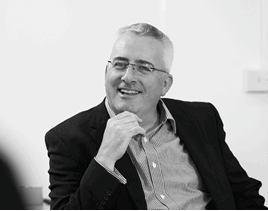 Peer review: Tim O’Neill
Peer review: Tim O’NeillUK Chief Executive Officer, Systra
There is no doubt that the UK rail industry is facing a skills and recruitment challenge - greater, perhaps, than at any time in living memory. Neil has done an excellent job at outlining the reasons for it and some of the critical steps that must be taken to address it head on, including the establishment of the National Skills Academy for Rail Engineering.
Our railways are certainly changing fast. They are changing because society is changing. Not just in terms of technology, but in the rapid progress towards knowledge-based economies. The individuals who best thrive in such an environment are very often those with the flexible, adaptable and (as Neil emphasises) transferable skills that are sought by every employer. If we want them in rail, we will have to fight for them.
We are talking about a new breed of employee - one who is comfortable in the rapidly changing, fluid social environment of today and the future, not just because of training and skills but because they reflect the social diversity that is a defining characteristic of that environment.
For these men and women ‘diversity’ is not just a human resources slogan but a lived reality, and if rail doesn’t reflect that it will be competing in the marketplace with one hand tied behind its back. That is why I believe that diversity needs to be emphasised ever more in our discussions of the skills, recruitment and training agenda.
Rail has a problem in this regard - we are too male, pale and stale. Doing something about this, making rail a natural career for people of all races, genders and sexualities, is not simply a matter of ticking boxes; it is essential if we hope to compete for workers who will have many other choices, and if we want to ensure that rail is truly alert and responsive to the social changes being lived by our customers.
Attracting a more diverse workforce is not just a question of removing obstacles, it requires imaginative, radically new approaches. The industry should be working as a matter of urgency to spell out what these new approaches should be, ideally in close collaboration with representatives of the social groups that we have to attract. That is a lot about diversity - not because there are no other great challenges, but because correcting the mono-cultural bias in the workforce will be an important part of addressing all of them. Implementing, managing and operating the accelerating technological changes in rail is going to be a huge undertaking - perhaps even more so than Neil’s letter suggests - because for most rail workers it will be a project that involves interlacing modern technologies with ageing legacy stock rather than ‘greenfield’ projects such as HS2.
The engineers and others who take this on will have to be the best in the world, and the approaches described by Neil will go a long way towards delivering them. But we are a technologically minded industry, good at finding technical solutions to technical problems. We are less good at the other stuff, so it is essential that we keep our focus on some of the important non-technical problems - too often dismissed by certain elements in the industry as mere political correctness - if we are going to achieve a truly modern rail system fit for the future.











